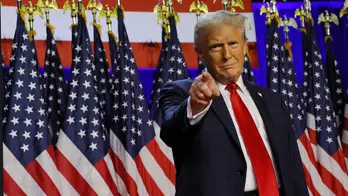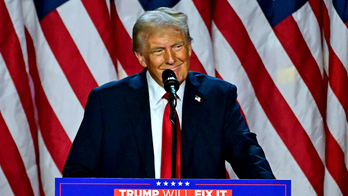Finland joins NATO over Russia's objection
Finland became the newest member of NATO today, as the country's flag - a blue cross on a white background - was raised over the defense alliance's headquarters in Brussels.
At the ceremony, NATO Secretary-General Jens Stoltenberg announced, "For almost 75 years, this great alliance has shielded our nations and continues to do so today. But war has returned to Europe and Finland has decided to join NATO and be part of the world's most successful alliance."
In a statement, President Joe Biden praised the addition of Finland to NATO, and pointed out it was the fastest ratification process in NATO's modern history.
"When Putin launched his brutal war of aggression against the people of Ukraine, he thought he could divide Europe and NATO," Biden said. "He was wrong. Today, we are more united than ever."
Why did Finland join NATO?
Finland raced to join NATO after Russia's invasion of Ukraine last year. It applied in May 2022. After years of public opposition to joining NATO inside Finland, polling now shows Finns embrace the move.
Emma Ashford, a senior fellow at the Stimson Center's Reimagining U.S. Grand Strategy Program, says that the Finnish people "have a long history of self-defense, resilience. They fought a war against Russia in the 1930s and into the 1940s for their own self-defense against the Soviet Union, and they kept that up through the Cold War."
As a result, she says, they bring a long view to NATO that is "a lot of other European states could learn from."
What is the impact of Finland joining NATO?
Finland shares a 832 mile border with Russia. Adding Finland to NATO will more than double the size of NATO's border with Russia; and it will double security on the border.
Kremlin spokesman Dmitry Peskov separately told reporters that Finland's accession to NATO was forcing Moscow to take countermeasures to ensure its security. On Monday, Russia promised to strengthen military capacity in its western and northwestern regions in response to NATO's expansion.
But some analysts warn that European states become less self-reliant once they enter NATO, and more reliant on the US military capabilities.
Sweden was also supposed to join NATO but has not yet been able to. What impact does that have?
In President Biden's statement on Tuesday, he pointed out that both Finland and Sweden applied for NATO membership at the same time, close to a year ago.
"Both countries are strong democracies with highly capable militaries, who share our values and vision for the world," President Biden said. "I look forward to welcoming Sweden as a NATO member as soon as possible, and encourage Turkiye and Hungary to conclude their ratification processes without delay. "
Sweden is still waiting to join. Hungary and Turkey - both NATO members - have resisted; Turkey accuses Sweden of harboring Kurdish separatists whom it regards as terrorists.
Emma Ashford of the Stimson Center points out that this is a problem for the military operations of Finland and Sweden, since they have long had integrated defense cooperation.
"It's going to add technical challenges as NATO's defense planners try and bring Finland into all of the alliance's strategic planning," Ashford said. "They have to basically accept that Sweden is outside and Finland is inside for right now. Finnish leaders obviously felt that it was better to be inside the alliance and reduce that sort of risk of this limbo period even if Sweden weren't there. But it's hardly an ideal circumstance."
Destinee Adams and Adam Bearne contributed to this article.
Disclaimer: The copyright of this article belongs to the original author. Reposting this article is solely for the purpose of information dissemination and does not constitute any investment advice. If there is any infringement, please contact us immediately. We will make corrections or deletions as necessary. Thank you.







